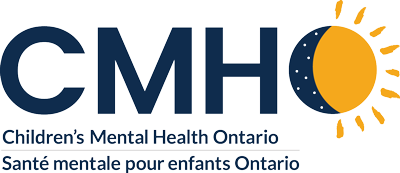C5-1: The Art of Culturally Appropriate Conversation in Diverse Communities
Children who require services may not access them in a timely manner because of a lack of cultural competence within the systems they encounter. The barriers to access within these systems can often end up marginalizing them instead. An intersectional approach to families that considers all their identities is necessary to enable optimal access to timely impactful service.
Bringing about change in inherently biased systems requires deep internal reflection as individuals and organizations. This presentation looks at cultural competence as a continuum of learning, examines how one’s culture impacts how they receive and process information and how to design a culturally competent approach to supporting families through the discussion of themes drawn from the Black, South Asian and East Asian communities.
Presenters:
Usha Shanmugathasan is an educator, mentor, trainer and curriculum developer passionate about early years education and equitable outcomes in K-12 education. She creates meaningful programming, facilitates workshops for various educational organizations, and is a Kindergarten teacher in Toronto. She recently graduated with a Master of Education in Educational Leadership and Policy from the University of Toronto and is a 2021 Arbor Award recipient for outstanding volunteer service to the University of Toronto.
Munira Khilji’s training as a healthcare professional, experiences as a parent of two and insight as an advocate for health equity in underserved communities deeply inform the initiatives she supports. Over the past ten years, Munira has championed the need for better support and services for families of children with autism. She started off with the community-led Thorncliffe Collaborative for Muslim Families that enabled parents to engage in training opportunities that were accessible and culturally sensitive. She then garnered experience in cross-sectoral partnerships and integrated healthcare pathways through her work coordinating a school-based paediatric clinic for Health Access Thorncliffe Park that focuses on supporting children and youth who experience challenges with learning, behaviour and development. Currently, Munira supports Ministry-led programming at the SAAAC Autism Centre.
C5-2: Community Care Project: Resource Kits for Culturally Diverse Autistic People
Resource kits have been used in a variety of health promotion and public health campaigns. Generally, resource kits have shown utility in their ability to reduce barriers to access (Clifford et al., 2010; Hundley et al., 2011), promote pro-health behaviours (Keihner et al., 2011), and support mental and physical wellbeing (Casline et al., 2021; Kroshus et al., 2023). Due to the COVID-19 pandemic, a rapid response to support families of autistic individuals was needed that complied with government restrictions. In response, Autism Ontario developed culturally inclusive resource kits in an effort to address inequitable pressures on mental health and wellbeing faced by ethnically diverse families of autistic children during the pandemic (Brown et al., 2020; Lee et al., 2021).
The resource kits were co-designed with key community groups and stakeholders (e.g., parents of children on the spectrum, stakeholders from ethnically diverse community groups, SAAAC, etc.) to help improve access to professionals, encourage self-care and the learning of new skills, and importantly, foster connections among culturally diverse, marginalized, and racialized families of autistic individuals. In total 3428 resource kits were distributed across Ontario, Alberta, and Yukon between September 2022 – May 2023. Preliminary data suggests a high level of satisfaction (Meanscore 4.58, SD 0.10) and enjoyment Meanscore 4.58, SD 0.25) among recipients. Further, analysis of interviews with parents suggests that the materials in the resource kits were meaningful to families, brought them together, and connected them to services/community agencies.
Presenters:
Lauren Tristani is the Research and Evaluation Specialist at Autism Ontario. Her research interests include psychosocial factors that promote physical activity and health behaviours among individuals with disabilities.
Anna Campbell is a graduate student in Department of Psychology at Carleton University. Her research interests include how to support autistic children in building healthy friendships within a school-based setting.
Dr. Vivian Lee is an Assistant Professor in the Department of Psychology at Carleton University. Her research interests include understanding the how the COVID-19 pandemic has impacted the mental health of parents with children in the spectrum, and how to support their well-being.
Dana Elsaid joined Autism Ontario in the Spring of 2022 as a project manager for the Community Care Project and the CMHO Building Integrated Capacity in Autism Mental Health. Working closely with the Education and Training team, Dana diligently focuses on project development, implementation, knowledge translation, and impact assessment, striving to ensure effective communication and measurement of project outcomes. Through co-creation and community engagement, she collaborates with stakeholders to foster the development of skills and resources for the autism community. Dana’s academic background includes a BHSc with a focus in Population and Public Health from the University of Ottawa, complemented by her experience in the non-profit sector. Through her unwavering dedication and passion, Dana strives to drive meaningful change and positively impact the lives of autistic individuals and families.

